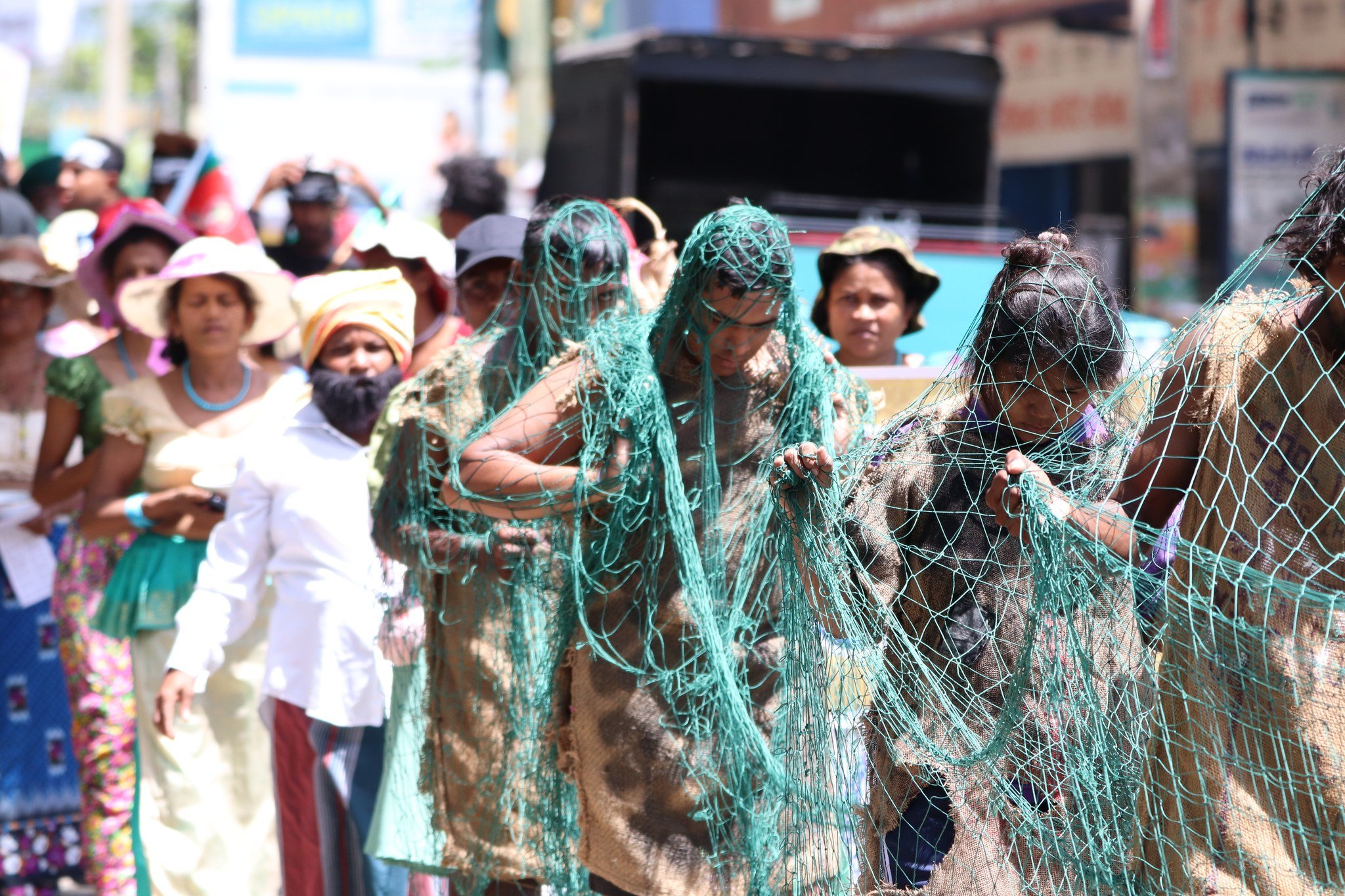In a press release issued on the 9th of May, several civil society members in Sri Lanka, including MONLAR, have called for accountability and transparency at the Ceylon Chamber of Commerce’s Climate Summit. They have alleged this summit under the theme Code Red: Climate Risks and Opportunities for Sri Lankan Businesses – is a greenwashing attempt by Corporate bodies.
“It was published that this event hopes to examine the economic sector’s threats and potential opportunities and outline desired policy changes for a low-carbon, resilient economy. Among several concerns about the nature of this event, calling a business summit that aims to ensure economic prosperity with the profit motive amidst the climate crisis a “Climate Summit” is misleading and is greenwashing a business summit,” the press release reads.
Lack of Inclusivity
The organizations have alleged that the Chamber of Commerce charging a hefty Rs. 40,000 per participant for a climate summit raises concerns about accessibility and true commitment to change.
“If these corporations have genuine interests in mitigating climate risks and improving resilience through investing in inclusive solutions, the focus would be on broad participation; the presence of farmers and fisherfolk, women and women-led businesses, organizations working on, individuals and marginalized communities affected by, and other stakeholders committed to, children and youth who will inherit the impacts of climate change are already facing various threats, thus this summit is not working towards climate justice when decision-making, rather than an exclusive, high-cost event.”
Accountability and Justice
The protesting organizations allege that the policy outlines being drawn at a closed-door event with the business community will not include accountability or justice for the small-scale farmers, freshwater fishers, coastal fishing communities, and women who are victims of human-made climate change induced by deforestation, heavy machinery, monoculture agricultural methods stunting biodiversity, and chemical use in industrial agriculture, emissions due to longer food miles, garbage, plastic pollution, and more. As an island disproportionately impacted by climate change while going through an economic crisis, Sri Lanka’s climate crisis is directly connected to its debt crisis.
Greenwashing Polluting Brands
The organizations have also highlighted that climate change should not be perceived as a profit-oriented opportunity but as a series of problems that require effective efforts and holistic solutions prioritizing the people whose livelihoods and existence depend on the natural environment and future generations.
“Having Nestle, one of the worst-polluting brands in the world, as a sponsor of this event is an extension of the hypocrisy of this event. This partnership raises questions about the Chamber’s commitment to genuine sustainability efforts. A few months ago, the CCC honored Nestle Sri Lanka with the “Best Corporate Citizen Sustainability Award 2023.” However, Nestle has been repeatedly criticized for being one of the top global plastic polluters, leaving a trail of plastic waste across 41 countries,” the release stated.
“When the Sri Lankan market allows polluting multinational companies to use the country as a market for greenwashing, it not only impacts Sri Lanka’s access to clean and transparent climate funding but also negatively impacts the SME businesses and cooperatives who genuinely make efforts to make their businesses sustainable,” added the organizations.
Recommendations
The civil society members have requested the CCC to re-evaluate its sponsorships and partnerships, and prioritize transparency. They have called for measures to stop the summit from becoming an echo chamber for corporations to promote unattainable goals, deflect responsibility onto consumers and future generations, and shift the narrative regarding climate change impacts creating gaps within policy frameworks.
They have urged the media to be more responsible in their reporting as they hold the power to distribute information to the public and to be more mindful of their biases and ethical reporting, not further distorting/misleading the public.
The organizations have also called upon the citizens to scrutinize the summit’s agenda and outcomes.
“True climate action requires accessibility, honest conversations, inclusive participation, concrete solutions, genuine commitment from all stakeholders, and transparency. Not just expensive marketing shrouded in greenwashing,” the statement concluded.
Cover Image is representative, and is from the May Day march organized by the Civil Society in Srilanka this year
This post is also available in Français.

